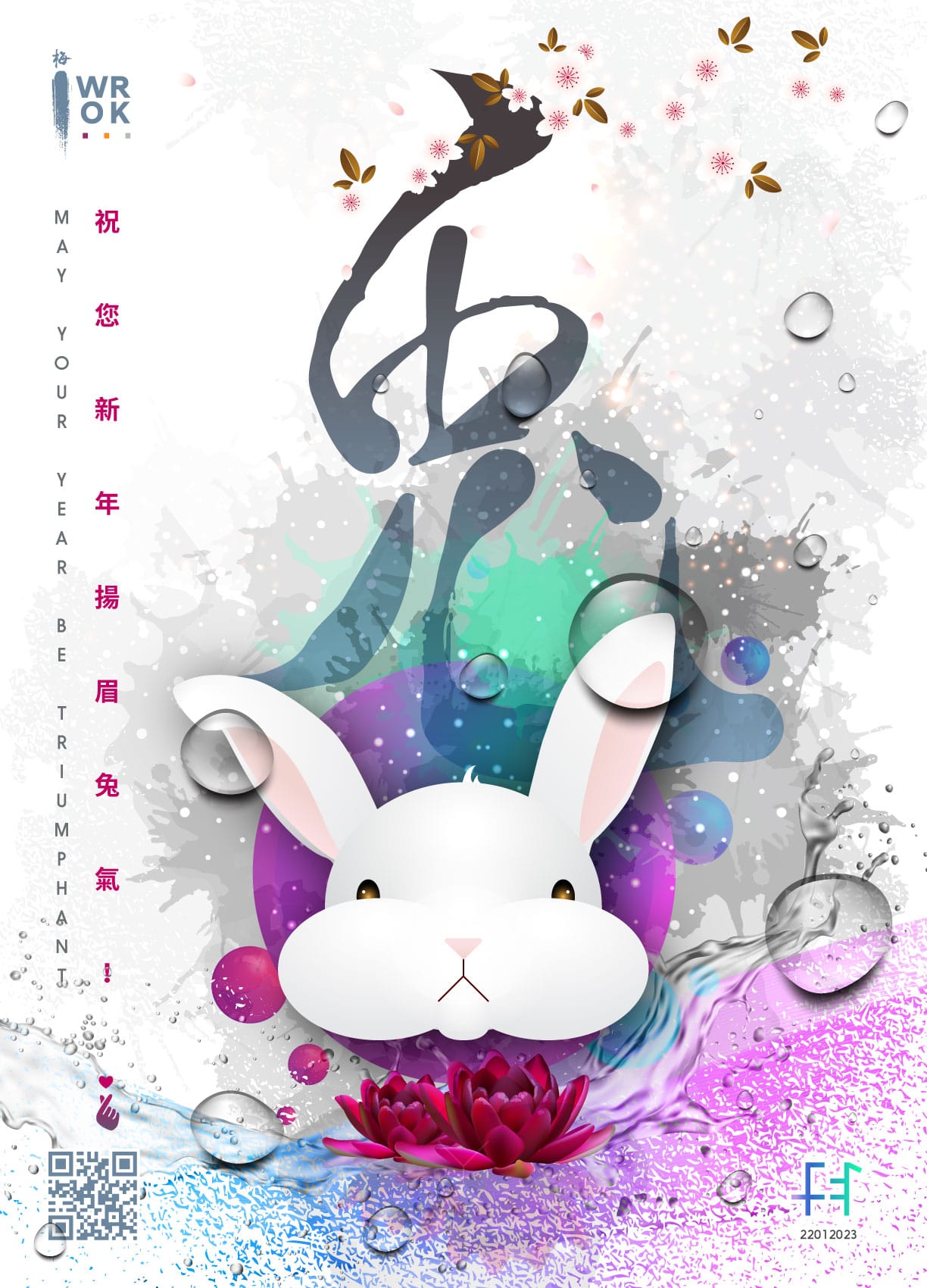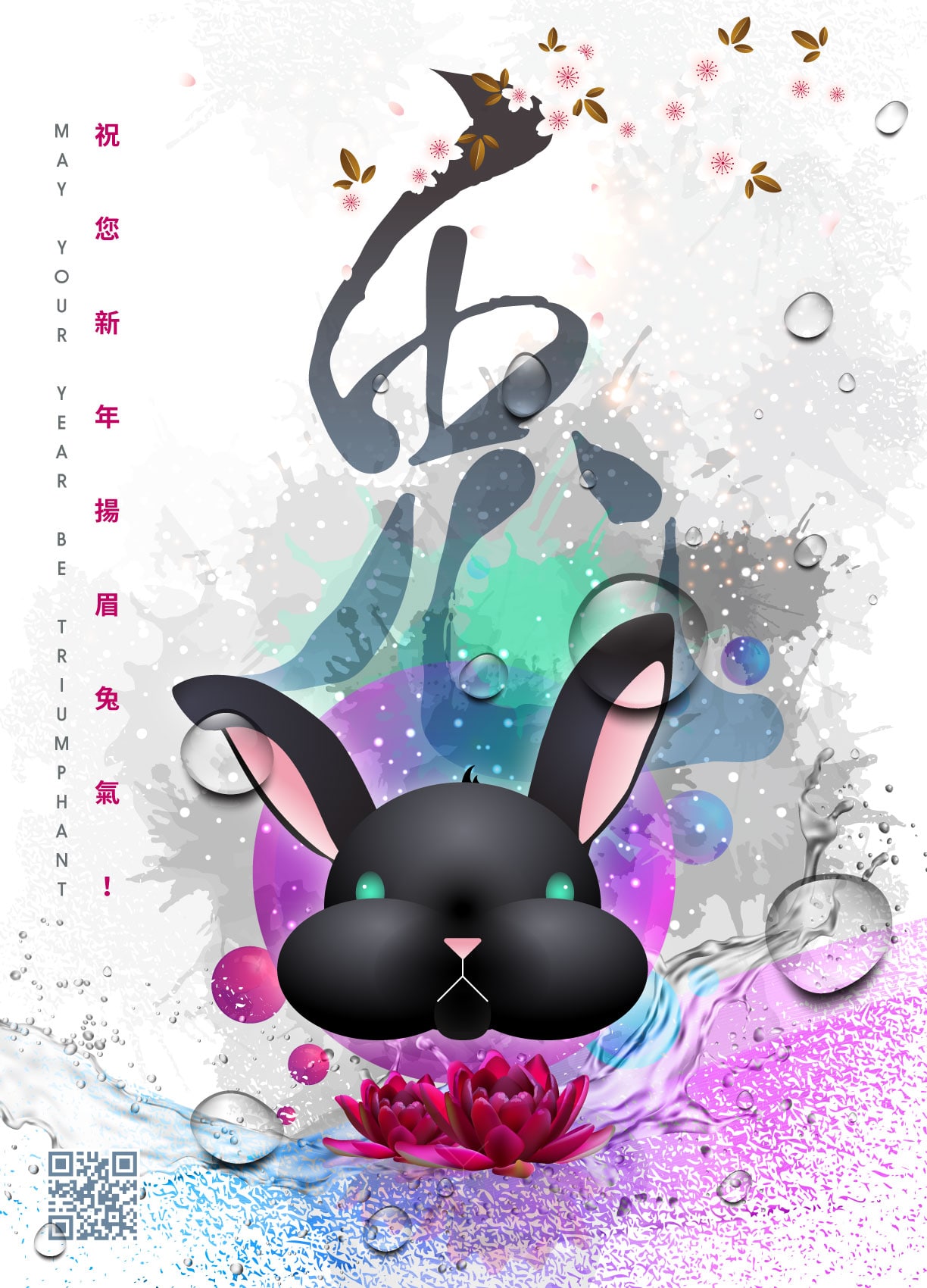
兔 tù
noun
: rabbit, hare
兎 (兔) | うさぎ usagi
noun
: rabbit; hare; coney; cony; lagomorph (esp. leporids)
兎 | と to or ツ tsu
兔子 tùzi hare; rabbit
兔年 tùnián Year of the Rabbit (e.g. 2011)
兔崽子 tù zǎizi brat; bastard
兔唇 tùchún hare lip (birth defect)
[兎唇 | みつくち mitsukuchi or としん toshin or iguchi いぐち: (sensitive word) harelip; cleft lip]
家兔 jiātù rarebit
野兔 yětù hare
[野兎 | やと yato or のうさぎ nousagi / nosagi: wild rabbit; Japanese hare (Lepus brachyurus)]
玉兔 yùtù the Jade Hare; the moon
卯兔 mǎotù Year 4, year of the Rabbit (e.g. 2011)
Japanese common word | expression | yojijukugo 四字熟語 | idiom | proverb
兎角亀毛 | とかくきもう tokaku kimou OR 亀毛兎角 | きもうとかく kimoutokaku
: (idiom) (yoji) {Buddha} things that do not exist; horns on rabbits, fur on turtles
***烏兎匆々 | うとそうそう uto sousou
: (yoji) days and nights passing by quickly; months and years flying by; Time flies
狡兎三窟 | こうとさんくつ kouto sankutsu
: (yoji) very shrewd in preparing a means of escape; being very good at escaping danger
脱兎の如く | だっとのごとく datto no gotoku
: (at) high speed; as fast as one can; with lightning speed
*狐死して兎泣く | きつねししてうさぎなく kitsune shi shite usagi naku
: (proverb) people have sympathy for kindred in distress; (when) the fox dies, the rabbit cries
**狡兎死して走狗烹らる | こうとししてそうくにらる kouto shishite soukuniraru
: (expression) when the enemy is defeated, the victorious soldiers can be killed off; when the nimble rabbit dies, the hunting dog is cooked
二兎を追う者は一兎をも得ず | にとをおうものはいっとをもえず ni to o oumo no wa itto omoezu
: (proverb) if you run after two hares you will catch neither
兎や角言う | とやかくいう toya kaku iu
: to say this and that (about); to say (critical) things; to criticize; to be critical (about); to find fault (with); to complain; to raise objections (to); to meddle (in); to interfere (in)
始めは処女の如く後は脱兎の如し | はじめはしょじょのごとくのちはだっとのごとし hajime wa shojo no gotoku nochi wa datto no gotoshi
: (proverb) (from Sun Tzu’s Art of War) hide your true strength, and then later swiftly attack the unprepared enemy; first be like a (meek) virgin, later like a running hare
Chinese expression | chengyu 成語 | idiom
*兔死狐悲 tu4 si3 hu2 bei1
: (idiom) lit. if the rabbit dies, the fox grieves; fig. to have sympathy with a like-minded person in distress
**兔死狗烹 tu4 si3 gou3 peng1
: (idiom) lit. to boil the hound once it caught the rabbit; fig. to get rid of sb once he has served his purpose
守株待兔 shou3 zhu1 dai4 tu4
: (idiom) lit. to guard a tree-stump, waiting for rabbits; to wait idly for opportunities; to trust to chance rather than show initiative
***東兔西烏 (东兔西乌) dong1 tu4 xi1 wu1
: (idiom) lit. the sun setting and the moon rising; fig. the passage of time
狡兔三窟 jiao3 tu4 san1 ku1
: (idiom) A sly rabbit has three openings to its den (now mostly referring to gangsters or hoodlums)
lit. a crafty rabbit has three burrows; a sly individual has more than one plan to fall back on
兔子不吃窝边草 tu4 zi5 bu4 chi1 wo1 bian1 cao3
: (idiom) A rabbit doesn’t eat the grass by its own burrow; One shouldn’t do anything to harm one’s neighbors
兔子尾巴長不了 (兔子尾巴长不了) tu4 zi5 wei3 ba5 chang2 bu5 liao3
: (idiom) rabbits don’t have long tails; its days are numbered; won’t last long
不見兔子不撒鷹 (不见兔子不撒鹰) bu4 jian4 tu4 zi5 bu4 sa1 ying1
: (idiom) you don’t release the hawk until you’ve seen the hare; one doesn’t act before one is sure to succeed
守株待兔,緣木求魚 (守株待兔,缘木求鱼) shou3 zhu1 dai4 tu4 , yuan2 mu4 qiu2 yu2
: (idiom) to guard a tree-stump, waiting for rabbits, and climb a tree to catch fish; without any practical course of action
金烏西墜,玉兔東昇 (金乌西坠,玉兔东升) jin1 wu1 xi1 zhui4 , yu4 tu4 dong1 sheng1
: (idiom) lit. the golden bird of the sun sets in the west, the jade hare of the moon rises in the east; fig. at sunset
象形 Pictographic.
Picture of a rabbit.
Semantic / Historical Variant:
兎 tu4: rabbit
Look-alike:
免 mian3: to excuse somebody; to exempt; to remove or dismiss from office; to avoid; to avert; to escape; to be prohibited
Examples:
祝您新年揚眉兔氣!
zhu4nin2 xin1nian2 yang2mei2 tu4qi4
May your year be triumphant!
揚眉吐氣 (yang2 mei2 tu3 qi4), used to describe how people show their triumph after a long period of bad time or failure by raising their eyebrows and exhaling their melancholy. (Here “raising eyebrows” doesn’t mean surprised or disapproval)
My wish to you is a Healthy, Prosperous and Successful 2023!
2023 Year of the
Black Water Rabbit:

Chinese New Year 2023, which lands on Sunday, January 22nd, is the Year of the Black Water Rabbit.
The Yin Water Rabbit represents sensitivity, intuition, and, in its most positive form, inner peace. This year promises a period of rest and reflection after the dynamic Year of the Tiger. Bide your time until the moment is right to act.
“Rivers know this: there is no hurry. We shall get there some day.”
― A.A. Milne, Winnie-the-Pooh
Let us not grow weary or become discouraged in doing good, for at the proper time we will reap, if we do not give in.
AMP Gal 6:9
“The two most powerful warriors are patience and time.”
– Leo Tolstoy
Resources: Chinese Dictionary | Japanese Dictionary


